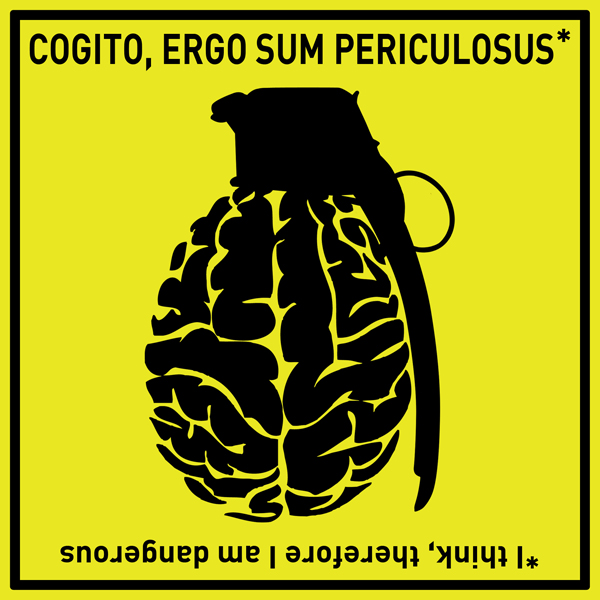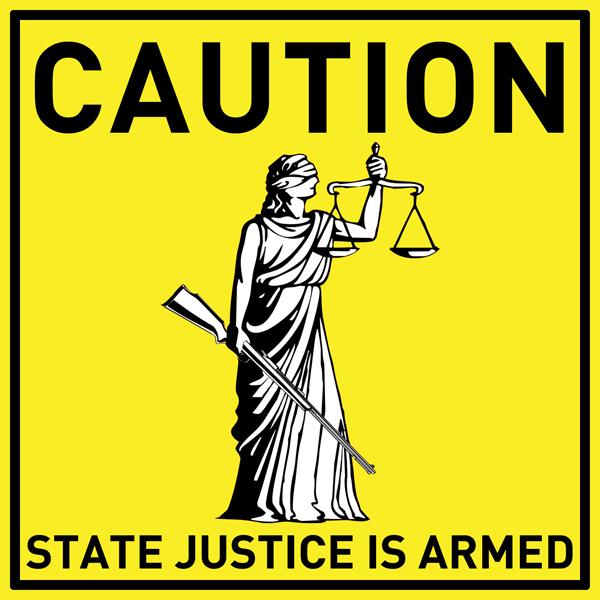|
|||||||||||||
|
to the Non-Revolutionary Activist Why You Must By Punkerslut
Introduction to the Social Problem
Society is full of problems. And everyone makes a decision in how to interpret those problems, as well as how to respond to them. Racism and unemployment, discrimination and poverty, authoritarian governments and oppressive laws. There are a thousand things that can catch our attention and fill us with sympathy. We are driven by our compassion for the victims of a senseless and tragic society. This is what brings us to wanting change. But when someone becomes an activist for a new society, they have to choose a way of approaching the problem. They must choose whether to be revolutionaries or not. What is the tradition approach for someone who wants to change society? In the past, what methods have people used when they decided that their social atmosphere needed to evolve? The first and most direct route in the minds of the people was to appeal to those in charge. To ask and seek out the mercy or the sense of justice in the governors and judges of society. If they have the strength to lock up people by the millions, the power of armies that pillage and destroy lands, then they certainly have the power to change anything in society. By the use of penalties and law enforcement, the government is able to create a law fulfilling some particular cause's motivation. In going to the legislature to create our social change, we are going to the politicians and the bureaucrats. We're going to those who make a regulation, and are capable of using coercion to make everyone in society stand by their standard. In issuing a tax on mail, a king can force all the people to count, ounce by ounce, every parcel they intend to send, and to charge exactly so much for each ounce. Because the state is capable of forcing such a conformity of behavior, it can be used to do good, as well. Or, at least, this is the traditional mode of thinking. If we want to end racism, or end unemployment, or create peace and abolish war -- we must go to the government and the lawmakers. This is how the non-revolutionary activist seeks to create to change. Their activities are not based on antagonizing the social order -- on agitating the people towards a common revolution. They make deals with politicians, police, and those in charge. The revolutionary activist, in contrast, seeks to create a revolution through the voluntary cooperation of the people. They do not want to legalize their reform; they want to impose it by the strength of the people resisting government. A Solution Through the Law
If one accomplishes their desires by appealing to the state, what have they really done? A government has accepted responsibility for whatever reform or social change the activist was seeking. It is now something that is within the hands of those who run and organize our social system. It is up to them to decide how far they need to go in applying the remedy to the problem. And it is rare that they'll meet the needs of the people exactly. Consider, for instance, racial slavery. The abolishment of slavery in the United States certainly did not go far enough; the entire system was essentially recreated under the title "penal servitude." [*1] Those who had fought for freedom for every person, regardless of race, did not envision this half-hearted measure as the true cure to the social disease. But the laws that failed to abolish slavery entirely were written by the legislators and the governors. It was something that was put into the hands of those with the powers of the state. And it was demanded that they do something to respond to the people's quarrel with the established order. The energy of these Abolitionist movements was focused on the state: the idea of using prohibition and the law to accomplish their objective. These activists and reformers didn't approach the people and tell them to rise up against the state, to demand for themselves what is most just and fair. They went to the state, and asked the government to pass and enforce these new laws. But this wasn't enough to make people free from forced labor. Then, one must consider the other type of reaction. It is possible that a state's policy goes far beyond the need and desire of the people. One example would be the First French Republic, from 1792 to 1804. The people genuinely sought to keep themselves free from monarchy and authoritarian governments. They also had every reason to feel threatened by this tyranny, since they were a nation surrounded by monarchist countries -- several of whom had declared war on France. But the new President of France, Maximilien Robespierre, was executing hundreds of people every month. [*2] It became known as the Reign of Terror. The behavior of the government did not protect the people from the monarchs of foreign lands. It only alienated the people from the idea of the revolution. This is because it was now the revolutionaries who were responsible for victimizing the people. The US government's policies were too weak to genuinely abolish slavery. France's revolutionary government was unrestrained in its persecution of people sympathetic to monarchy. Both of these were states trying to respond to what was really the people's desire. But one couldn't go far enough, and the other went too far. Neither could accurately estimate and understand what the people were really seeking.
The Obedience Model of Social Evolution
Imagine that you are capable of getting something out of the system for the oppressed and the exploited. Whether it is not enough, or it is too much, has become your new source of struggle. It is the new form of the fight -- to adjust the social order so that there is a real justice for everyone. But, no matter what new tactics you adopt, you accept the system's method of resolving your problem. You look upon the law and its police officers as the frame which is holding up your reform and social change. Your energy and devotion to a cause has been invested in this form. And, if the system becomes threatened, then you must defend the system; it is the only way you have been able to enact your desired change to society, and maintaining the government is the only way to maintain your social change. In World War 1, Germany was at war with Russia, France, and Britain, over a colonial dispute in Eastern Europe. It was not a war about creating peace, or about ending oppression; it was a war for enlarging the sphere of power for those who already possess vast wealth. Despite all of this, the Socialists of the country supported the war entirely, because they believed they could maintain the social reforms they had so far advanced. [*3] During this same war, Mohatma Gandhi volunteered as a military recruiter in India to help the British against the Germans. [*4] Again, this was an effort to get something out of the rulers; in this case, it was independence from the British Empire. It was also denied, following the war. In trying to achieve their reform through government, these activists only supported a greater tyranny. They never were able to gain what they had really desired, because they were obtaining it by begging and asking their masters. And once something is achieved, the activist becomes the obedient servant of the state. They must, because it is the only way they can maintain what they have so far fought for. This means that to achieve whatever small piece of freedom we have, we have to assist government in oppressing others. As a non-revolutionary activist, the whole approach to the system is based on submission and not on confronting the causes of our social diseases. It is to approach injustice to beg for mercy -- not to fight for freedom. If social justice is accomplished by the law, then it can also repealed. But if it is accomplished by the people rising up, and demanding their liberty, then it will be maintained. For there is no sturdier a safeguard against tyranny than the willingness of the masses of people to resist oppression.
The Social Revolution and Our Liberty
What will happen, after you have reformed this evil, whether it is war or sexism, unemployment or discrimination? The powers that created this social ill will go on to create more problems, to implant more divisions among society. And now, you must side with them, since they have upheld your reforms. Their survival means the survival of your activism work. In essence, you become the system, upholding it because now it upholds some of your values. But, you become a defender of the new methods that are invented for exploiting, subjugating, and controlling the people. If you really want to accomplish change in society, don't approach government begging. Don't go to them to make laws for you, to pass bills or hold trials. Don't ask them to give officials overlooking a matter, to make bureaucratic systems, to empower the police and the military. By doing any of these things, you're worsening the cause of our social problems. You're giving strength and life to the things that make poverty, homelessness, racism, war, and exploitation. Confront the government. Become a real source of change and organize the people for struggle against authority. Then they will be able to demand exactly what needs to be done to achieve fairness in society. And, unlike those who use the law to change society, you won't be guilty of assisting the state in oppressing and exploiting others; you will not turn your changes to society into another system that is despised and hated by the people. To be an activist that can really create a new world, you must also be a revolutionary.
Punkerslut, Resources *1. Slavery by Another Name: The Re-Enslavement of Black People in America from the Civil War to World War II, by Douglas A Blackmon, Doubleday; 1St Edition edition (March 25, 2008).
|




